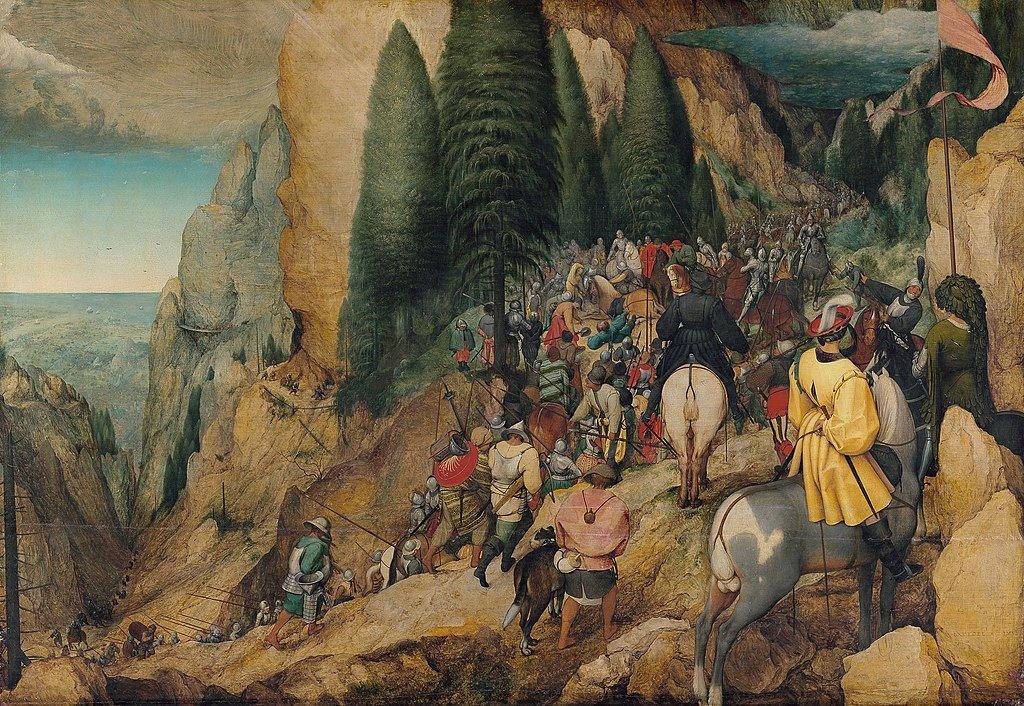Description
The Conversion of Paul, the work of the Flemish master Pieter Bruegel the Elder, is a painting that has captivated art lovers for centuries. This Flemish Renaissance masterpiece is a stunning depiction of the Biblical story of the conversion of Saint Paul.
The painting shows Saint Paul falling from his horse while being blinded by a divine light. The composition of the work is impressive, with a large amount of detail that can be seen in every corner of the painting. Bruegel's artistic style is evident in the way he has rendered the figure of Saint Paul, with great attention to detail and a soft, delicate brushwork technique.
Color is another prominent aspect of Paul's Conversion. Bruegel has used a palette of rich, vibrant colours, which give the painting a sense of life and movement. The warm, bright tones of divine light contrast with the darker, earthier tones of the background landscape, creating a sense of depth and perspective.
The story behind the painting is also fascinating. The Conversion of Paul was commissioned by Cardinal Federico Borromeo in the 17th century and became one of the most important works in his collection. The painting has passed through various hands over the centuries, and today it is in the collection of the Museum of Art History in Vienna.
There are many little-known aspects of Paul's Conversion that make this painting even more interesting. For example, Bruegel is believed to have used his own son as a model for the figure of Saint Paul. Furthermore, the painting has been the subject of various interpretations over the years, with some critics suggesting that it depicts the struggle between the Reformation and the Counter-Reformation in the Catholic Church.

